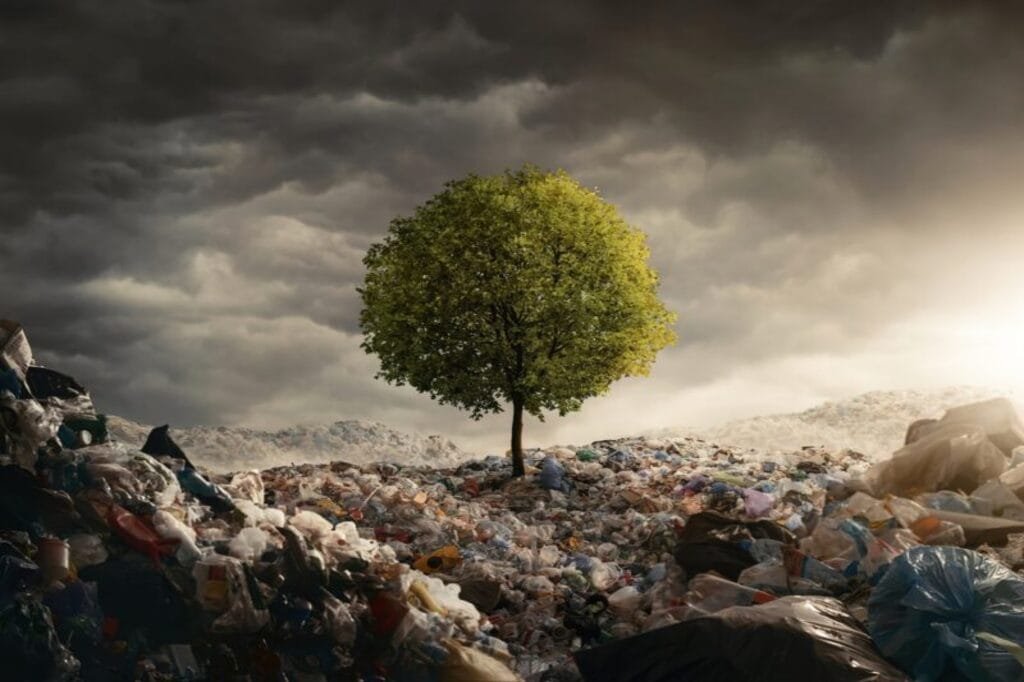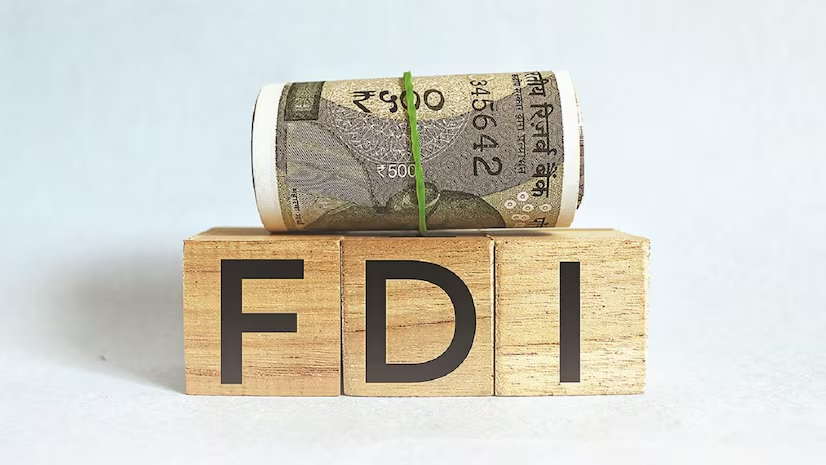In the bustling cities and serene rural sceneries of Ghana, a silent revolution is underway— a revolution not of arms or politics, but of plastic. One that transforms discarded mate- rials into economic opportunities, paving the way for a sustainable future.
The recycling industry in Ghana has emerged as a shining example of innovation, turning waste into wealth and contributing to both environmental conservation and economic growth. At the heart of this transformation lies the metamorphosis of plastic waste from a nuisance into a valuable commodity, driven by the ingenuity of entrepreneurs and the dedication of environmentalists.
Ghana, like many nations, faces the challenges of managing waste generated by its growing population and urbanization. However, what sets Ghana apart is the proactive approach it has taken to address these challenges. In recent years, the country has witnessed a significant shift in mindset, with an increasing recognition of waste not just as a problem but as a valuable resource waiting to be harnessed.
From Plastic Bottles to Profitable Ventures
One of the most remarkable success stories in Ghana’s recycling industry centers around plastics. The proliferation of single-use plastic items posed a severe environmental threat. However, forward-thinking entrepreneurs and environmentalists saw an opportunity within this challenge. Recycling plants have sprung up across the country, transforming plastic waste into raw materials for the production of new items, from packaging materials to eco-friendly construction components.
Polyethylene terephthalate (PET) bottles, plastic packaging, and various other forms of plastic waste have long plagued Ghana’s landscapes, clogging waterways, and littering streets. However, instead of viewing these materials solely as pollutants, visionary individuals have recognized their latent potential. Recycling technology has become the catalyst for change, facilitating the conversion of discarded plastics into new, useful products while simultaneously mitigating environmental harm.
Central to Ghana’s recycling revolution are state-of-the-art recycling plants equipped with cutting-edge machinery.
These facilities represent the nexus where innovation meets environmental responsibility. Here, plastics undergo a meticulous process of sorting, shredding, and reprocessing, transforming them into raw materials ready for reuse. From PET flakes destined for textile production to recycled plastic pellets used in manufacturing, these plants are at the forefront of a sustainable economy and generating a massive investment.
Investment Opportunities in Recycling
For investors seeking socially responsible and environmentally sustainable ventures, Ghana’s recycling industry presents a multitude of opportunities. From establishing recycling plants to investing in innovative technologies, there is ample room for growth and impact.
With a conducive regulatory environment, growing demand for recycled materials, and a commitment to environmental stewardship, Ghana offers a fertile ground for investment in recycling ventures. From establishing recycling plants to investing in innovative technologies, there are numerous avenues for investors to contribute to Ghana’s economic development while advancing the cause of sustainability.
Furthermore, there is significant potential for investment in innovative re- cycling technologies. As the recycling industry evolves, advancements in technology are driving efficiency, scalability, and sustainability. From automated sorting systems to chemical recycling processes, technological innovations are unlocking new opportunities to extract value from waste streams. Investors who support research and development in this field can not only benefit financially but also drive positive change by catalyzing the adoption of cutting-edge recycling solutions.
The demand for recycled materials, both domestically and internationally, further underscores the attractive- ness of investing in Ghana’s recycling industry. With growing awareness of environmental issues and increasing regulatory pressure to reduce reliance on virgin materials, the market for recycled plastics, metals, paper, and other materials is expanding rapidly. By investing in the production and distribution of recycled materials, investors can tap into a lucrative market while contributing to resource conservation and waste reduction efforts.
Moreover, investing in Ghana’s recycling industry offers investors the opportunity to make a tangible impact on local communities and the environment. Recycling enterprises create jobs, stimulate economic growth, and empower marginalized populations by providing income-generating opportunities. Additionally, by diverting waste from landfills and incinerators, recycling contributes to environmental preservation, reducing pollution and conserving natural resources for future generations.
However, while the investment potential in Ghana’s recycling sector is vast, it is not without challenges. Investors must navigate regulatory frameworks, market dynamics, and operational considerations to ensure the success and sustainability of their ventures. Collaboration with local partners, government agencies, and community stakeholders is essential to over- come barriers and maximize impact.
Impacts of This Recycling Revolution
One of the most significant impacts of this recycling revolution is its dual bene- fit: environmental and economic. By diverting plastic waste from landfills and incineration, Ghana is reducing its carbon footprint and alleviating pressure on its ecosystems. Furthermore, the creation of a viable market for recycled plastics has unlocked new economic opportunities, generating jobs and income for communities across the country.
However, the success of Ghana’s plastic metamorphosis extends beyond the realm of industry. It is also a demonstration to the power of collaboration and collective action. NGOs, government agencies, businesses, and local communities have rallied together to promote recycling initiatives, raise awareness about plastic pollution, and implement policies that support sustainable practices. Through education and advocacy, the message of environmental stewardship is spreading, inspiring individuals to rethink their consumption habits and embrace a circular economy.
Creating Jobs and Empowering Communities
One of the most striking aspects of Ghana’s recycling landscape is the active involvement of its youth, as well as individuals who have migrated from neighboring countries. These young individuals, often facing limited prospects in traditional employment sectors, have found a new avenue for earning a livelihood by engaging in plastic waste collection and sales. Their participation not only contributes to the mitigation of plastic pollution but also provides them with a source of income and economic agency.
Local communities have also emerged as vital stakeholders in the recycling process. From urban centers to rural villages, community members have taken on the role of waste collectors and sorters, actively participating in the collection and segregation of plastic waste. This decentralized approach to recycling not only alleviates the burden on formal waste management systems but also fosters a sense of ownership and responsibility within communities towards their environment.
The symbiotic relationship between recycling initiatives and job creation is evident at every stage of the recycling process. As plastic waste is collected and sorted, it becomes a valuable commodity that feeds into the operations of recycling plants. These facilities, equipped with advanced technology and machinery, require a workforce to operate efficiently. From technicians and machine operators to administrative staff, recycling plants offer a diverse array of employment opportunities, further bolstering local economies.
Moreover, the ripple effects of recycling extend far beyond the confines of recycling plants. As income generated from recycling activities circulates within communities, it stimulates economic growth and resilience. Small businesses emerge to support the recycling ecosystem, from shops selling recycled products to entrepreneurs offering ancillary services such as transportation and logistics. In this way, recycling becomes not just a means of waste management but a driver of broader socio-economic development.
Perhaps most importantly, recycling empowers communities by fostering a sense of self-reliance and resilience. By taking control of their waste management processes and creating value from discarded materials, communities assert their agency in shaping their own futures. This empowerment is particularly pronounced among marginalized groups, including women and rural populations, who find new opportunities for economic participation and social inclusion through recycling initiatives.
However, the full potential of recycling as a force for job creation and community empowerment in Ghana is yet to be realized. Challenges such as inadequate infrastructure, limited access to technology and markets, and insufficient policy support persist, hindering the scalability and sustainability of recycling efforts. Addressing these challenges will require concerted efforts from government, civil society, and private sector stakeholders to invest in infrastructure, provide technical assistance, and enact supportive policies.
The Ghanaian government has been proactive in promoting and supporting the recycling industry. Policies have been enacted to regulate waste management practices, encourage recycling enterprises, and incentivize the adoption of sustainable waste disposal methods. These measures signal a commitment to fostering a circular economy where waste is minimized, and resources are utilized efficiently.
Challenges and the Path Forward
Despite the remarkable progress made, challenges remain on the horizon. Ghana, like many developing nations, grapples with issues such as inadequate waste management infrastructure, lim- ited access to recycling facilities, and a lack of widespread awareness about the importance of recycling. Addressing these challenges will require continued investment in infrastructure, policies, and education, as well as innovative solutions to overcome logistical barriers.
Adequate waste collection infrastructure, public awareness, and consistent enforcement of recycling policies are areas that require ongoing attention. Investment in research and development to explore new recycling techniques and applications is also crucial for the industry’s continued evolution.
Ghana’s recycling industry is a proof to the transformative power of turning challenges into opportunities. Waste is no longer just a burden on the environment; it has become a valuable resource that fuels economic growth, creates jobs, and positions Ghana as a leader in sustainable development. As the nation continues to explore innovative ways to convert waste to wealth, it not only secures a cleaner environment but also lays the foundation for a more prosperous and resilient future. The journey from waste to wealth in Ghana is not just a local success story; it is a model for sustainable development that resonates globally.








